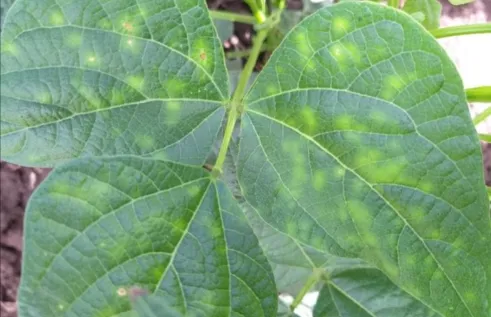Our focus
Our research aims to produce knowledge to improve surveillance and diagnostics of invasive species in northern Australia and the broader region. We apply research approaches in genomics combined with landscape epidemiology and computational modelling. We undertake multi-disciplinary research across invasive animal, plant and aquatic pests and diseases and collaborate with industry, industry bodies and government to provide students with opportunities for professional development as well as career progression in biosecurity.
Our main research interests include:
- Using genomic approaches to investigate population structure and gene flow of disease vectors to understand disease entry and spread in northern Australia.
- Improving environmental and biosecurity surveillance and monitoring using environmental DNA.
- Understanding the risk of endemic species in tropical Australia as potential vectors and hosts for diseases.
- Improved diagnostics and taxonomy for agricultural and environmental biosecurity.
Importance of this research
Northern Australia is recognised as a high-risk zone for the introduction of exotic pests and pathogens, due to its vastness, remoteness and high vulnerability. The Tropical biosecurity group provides research to support a science-based approach to prepare, respond and manage pests, diseases and weeds and contribute to the protection of northern Australia’s unique environment and economy.
Specialist expertise
- Molecular laboratory, next-generation sequencing technology
- Trace DNA facilities and equipment
- Biostatistics and bioinformatics expertise and infrastructure
- Strong collaborative links with other research institutions and biosecurity focused stakeholder groups
Meet the team
Team leader
Research fellows
Dr Zach Clark
Research Assistant
Postgraduate students
- Tomoko Okazaki
- Allyson Malpartida
- Avalon Yennefer
- Noor Ul Ain Rashid
Current projects
Rapid diagnosis of root-knot nematode races through an epigenetic & multi-genomic approach
Root-knot nematodes (RKN) are the most damaging group of plant-parasitic nematodes. One of the most challenging aspects of managing RKN is identifying the physiological ‘races’ which are present among the important species. There are significant differences in virulence and host interactions across races, but they are morphologically indistinguishable and cannot be differentiated presently using any standard molecular methods. This project will apply genomic and epigenomic markers to characterise RKN virulence and resistance-breaking mechanisms and provide pathways to identify virulent and resistance-breaking races in the field. The outcome will be accurate and cost-effective tools for identifying and screening Australian RKN samples for virulence/host susceptibility.
Funded by Horticulture Innovation Australia Limited and Commonwealth Scientific and Industrial Research Organisation (CSIRO).
Understanding the current and future distribution of parasitic plant nematodes in northern Australia
Northern Australia has immense potential for cropping and a diverse range of horticultural crops, including mango, melon, and Asian vegetables, as well as new industries such as cotton, hemp, and legumes. Plant-parasitic nematodes are a major limiting factor in crop production, and the risk in northern Australia is not fully understood. In this project, the presence, distribution, and abundance of plant-parasitic nematodes will be assessed in key northern Australian crop-growing districts through surveys and the collation of historical and current data. In addition, the project seeks to develop capacity in surveillance and diagnostics and support a shared responsibility approach to biosecurity in northern Australia.
Funded by the Department of Agriculture, Fisheries and Forestry (DAFF), Commonwealth Government Agency.
Understanding gene flow and population structure in an animal disease vector
The project aims to investigate how exotic animal diseases carried by an insect vector could spread in northern Australia. Culicoides or biting midges, are animal disease vectors of concern in northern Australia. The project will develop new approaches to biosecurity surveillance and early detection of exotic animal disease by utilising innovative genomic methods and epidemiological modelling.
Funded by the Department of Education (DoE) Commonwealth Government Agency via National Industry PhD Program and Department of Agriculture and Fisheries (DAF) of the Northern Territory Government (NTG).
Media highlight: This project has been featured in a CDU media release highlighting its role in strengthening northern Australia’s biosecurity preparedness through advanced genomic surveillance and disease modelling.
Development of eDNA sampling detection of animal disease from on-farm water sources
This project will assess on-farm sampling for detecting animal disease using modern molecular methods such as environmental DNA (eDNA). eDNA refers to traces of DNA that are shed from live organisms into the environment. When eDNA is tested it can indicate which organism the DNA came from and allow early detection of pests and diseases. The project will focus on developing eDNA sampling for on-farm water sources that can be performed by industry and stakeholders to support biosecurity surveillance in northern Australia.
Funded by the Northern Hub and Charles Darwin University (CDU).
Developing environmental DNA resources for aquatic biodiversity monitoring in the Northern Territory
This project will develop resources and capability for improving the application of environmental DNA (eDNA) methods for biodiversity survey and monitoring in the Northern Territory (NT) in collaboration with the Museum and Art Gallery of the NT. Funded by Northern Territory Government
Media
Podcast
A conversation with Professor Maxine Piggott who leads the Tropical Biosecurity Group in the Research Institute for Northern Agriculture (RINA) at Charles Darwin University.
You can listen to the conversation using the audio player on the Wide Open Air Exchange web site or access the podcast via iTunes or Spotify (or search for “Wide Open Air Exchange” on your preferred podcast platform).
Contact the tropical biosecurity group
Maxine Piggott
Group leader
08 8946 6763
maxine.piggott@cdu.edu.au
CDU Casuarina Campus, Yellow 1, Level 1, Room 25
